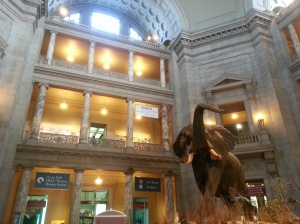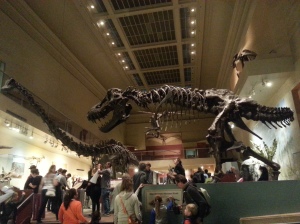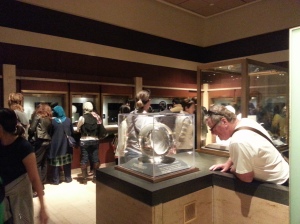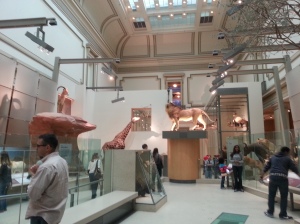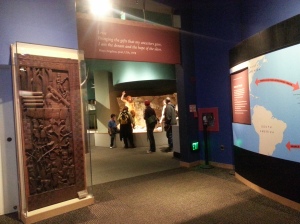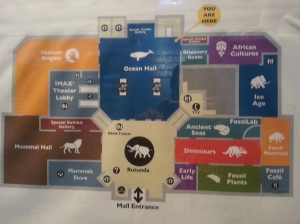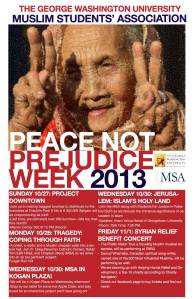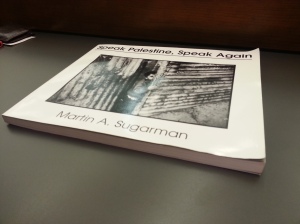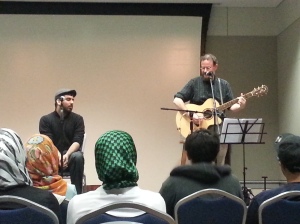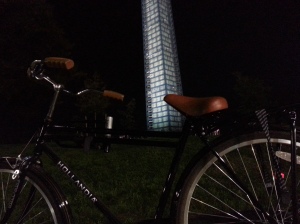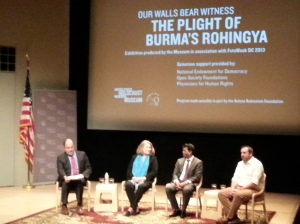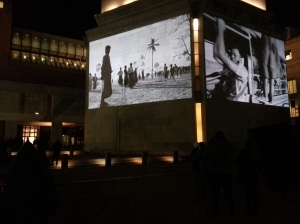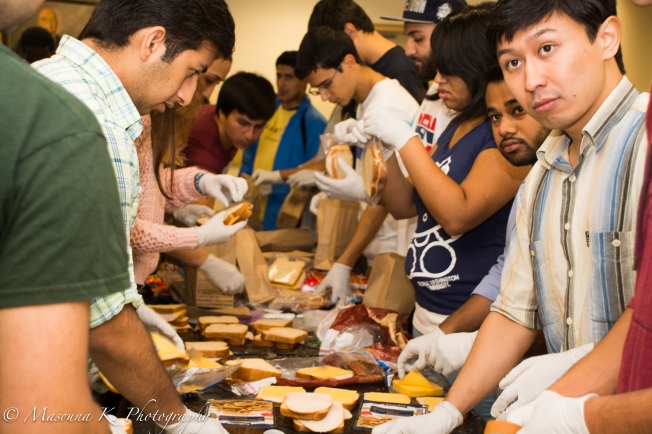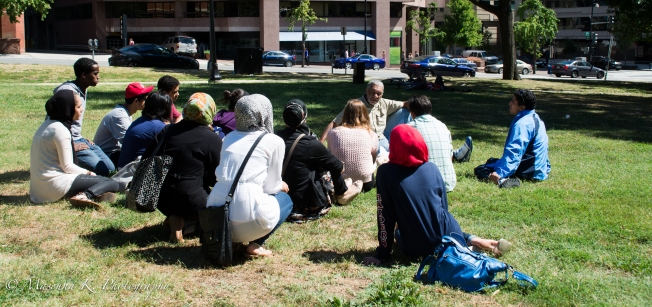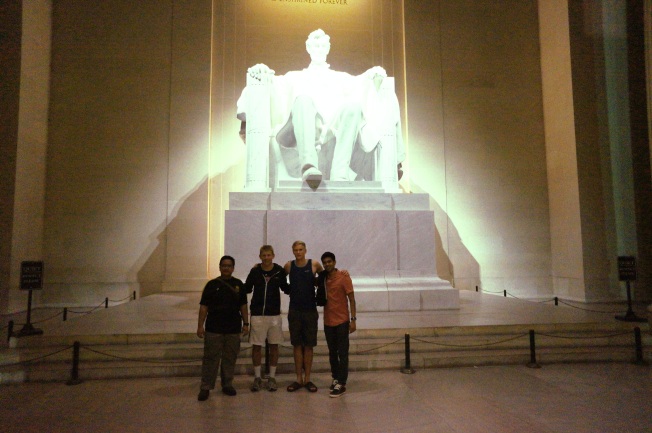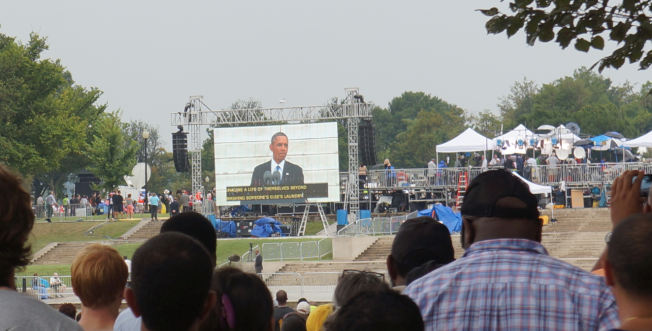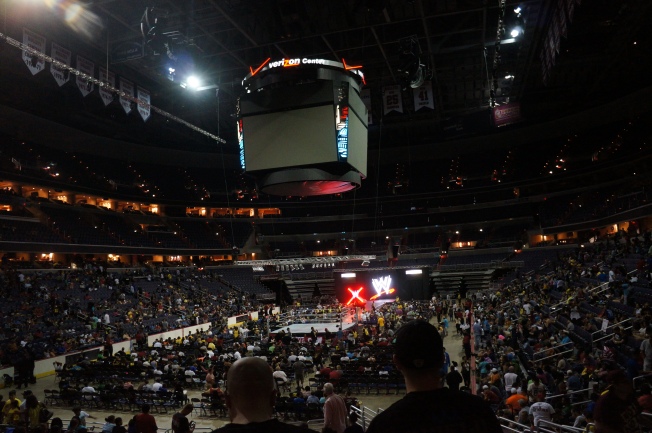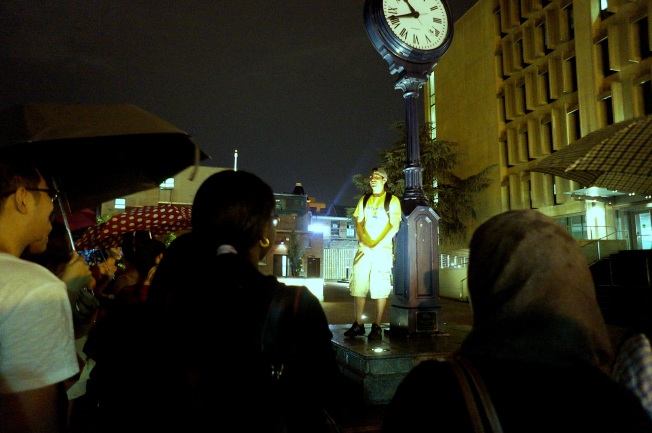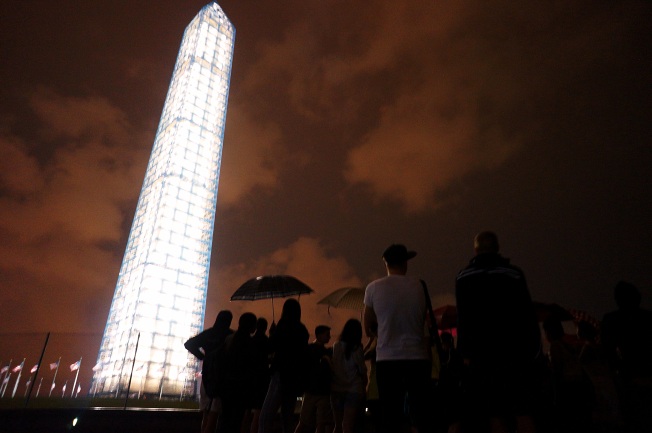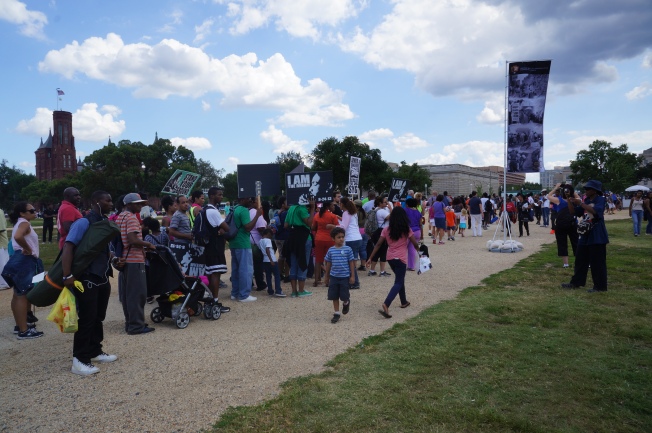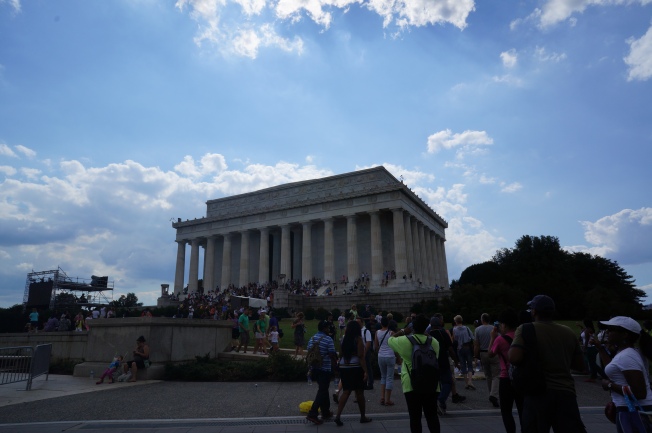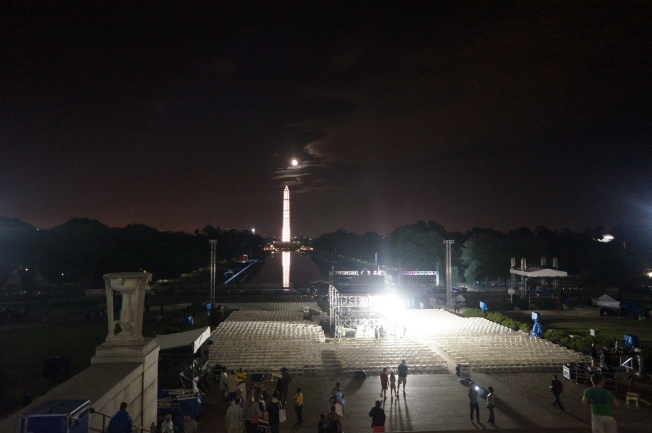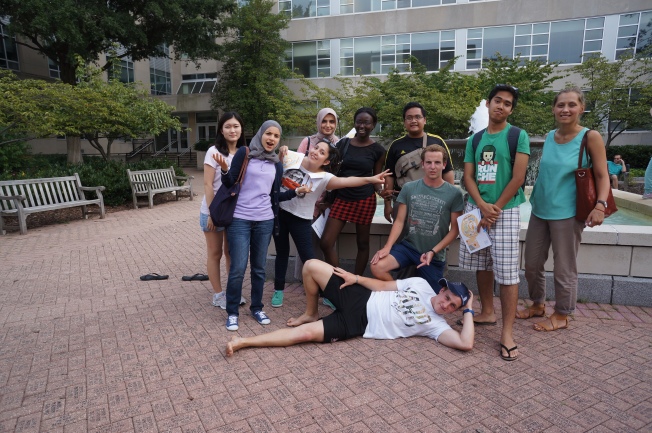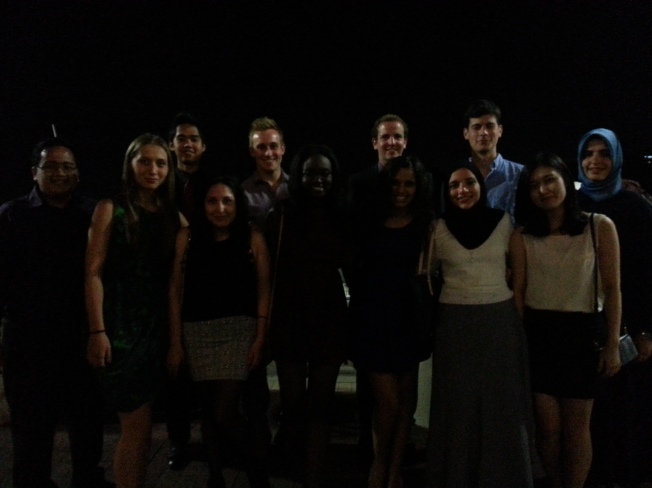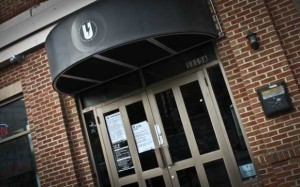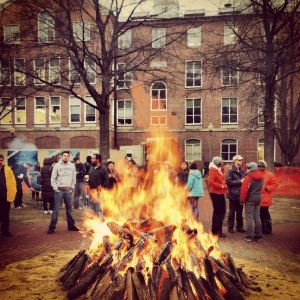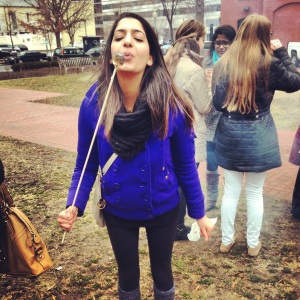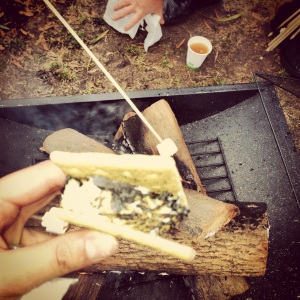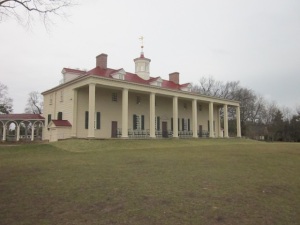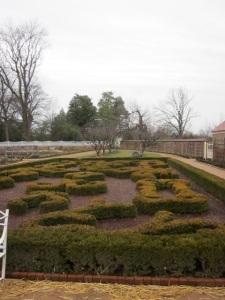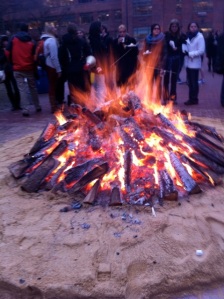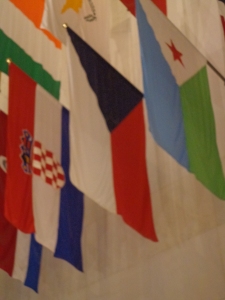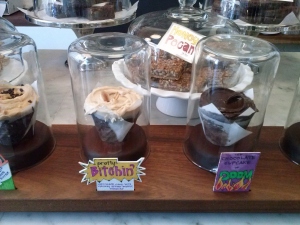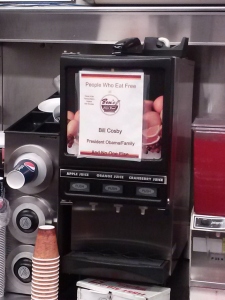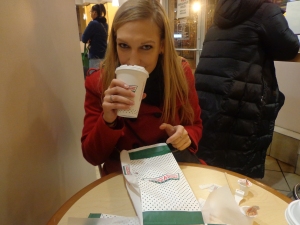Our consciousness of the world we live in is influenced by many factors. Censuses, maps and museums, for instance may chisel and affect our imagination of our “nationality”. In another instance, the news, new media and social media may frame our worldview. As an exchange student I am ripped apart from a reality I used to be comfortable in and I now witness the world within a different context and experience a different consciousness.
National Museum of Natural History
I went to the National Museum of Natural History recently, hoping to exploit this temporary “separation from reality” feeling I was having. Honestly, I expected to be mildly educated in things I can just find out about on Wikipedia in my spare time. That expectation was surely exceeded by the vast amount of information presented to me. I went through a journey of time, passing by fossils and crystals and looking at dinosaurs and more familiar ocean and land animals.
Everything was categorized and put in place, providing a narrative of sorts.
So I was shocked, when I passed by the Neanderthals in the Ice Age section and into a section called African Cultures.
I found the immediate shift rather distasteful. I had the gaze of a human looking at animals and pre-humans and I was somewhat forced to carry that gaze through this section. I consciously knew this was an exhibit of culture. Yet, to me it didn’t seem to fit into the scheme of things. I realize I had a different view of things. As a student of social science, and coming from a region where colonial powers once looked at us and toyed with us as if we were animals, I was being overly sensitive. I seem to be the only one bothered with the placement of the exhibit.
Peace, not Prejudice
Among the activities of the GWU Muslim Students Association include a weeklong program called “Peace Not Prejudice Week 2013”.
I had the opportunity to taste apple cider for the first time in my life on Wednesday. It was heavenly and it cheered me up for the rest of my day of classes.
Among the more informative activities included the talk about Jerusalem and the Syrian Relief Benefit Concert; the latter activity included a sharing session by a lobbyist and a member from an NGO.
I also attended an exhibit by the United States Holocaust Museum named “Our Walls Bear Witness: The Plight of Burma’s Rohingya”.
After my classes, I cycled down to the Museum located along the Mall. It was really cold and my face was frozen by the time I got there. I’m happy the bicycle has served me well so far. I have lent it to friends as well.
The panel of discussion included Dr. Holly Atkinson from Physicians for Human Rights, the photographer Greg Constantine and Maung Tun Khin who was born and raised in Arakan State, Burma. Tun Khin is a leader in the Rohingya exile community and the grandson of a Parliamentary Secretary during Burma’s postcolonial democratic period.
What followed were stories and explanations of genocide committed towards the Rohingyas who are currently stateless and defenseless. The photos that were flashed only burnt sad images of brutal injustice onto my retina as my ears were fed with words such as “forced labour” and “children burnt alive”.
We were then led out to see the rest of the photos, projected onto the exterior wall of the Museum.
I Witness
I witnessed a lot in a week, including stories from home, where there is a peaceful movement to allow the hijab to be worn by female professionals. Under Singapore’s constitution, Articles 152 and 153, the Malay-Muslim minority has a constitutional basis for this movement. In other parts of the world, the hijab is often misunderstood as a sign of oppression. In Singapore, the movement to allow the hijab to be worn presents itself as a movement of freedom and civil liberty. Professional Muslim women around the world, including in the US, Canada, Britain, Sweden and Thailand have already been allowed to wear the hijab. Muslim nurses and other Muslim women in the uniformed services in Singapore face a steep challenge paved with discrimination, racism, misunderstanding, male chauvinism, a semi-authoritarian government and fear. I could only sign an online petition, which was eventually taken down after reaching more than 12,000 signatures. Currently, the issue is slowly and barely allowed to be discussed in the press. Not many non-Muslims are sympathetic towards this cause. The Malays have after all always been an "underclass". I wish the movement the best of luck and hope their objectives are just and legal and that the Malay community present the value of neighborly peacefulness and co-operation that has always been doubly emphasized by culture and religion.
Living as a resident alien in the US, the beacon of democracy and freedom, I also hope that those who pursue justice, liberty, freedom and equality everywhere else in the world eventually find themselves victorious.
The past week was a week of layers of discovery. I only wish that, in the weeks to come, I would have fewer assignments to do so that I can leave my desk more often.

